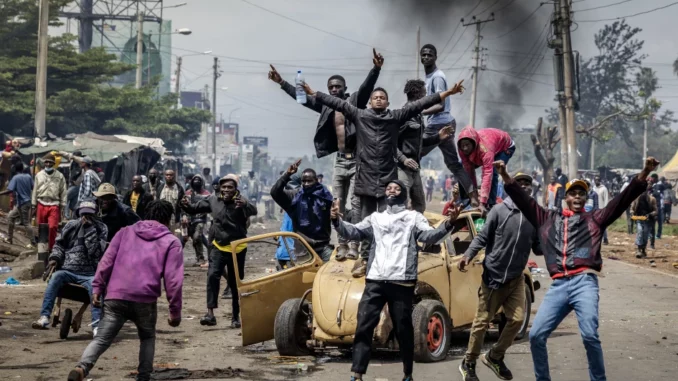
At least eleven people have been confirmed dead and over fifty Police officers injured following nationwide anti-government protests in Kenya on July 7, marking the 35th anniversary of the historic ‘Saba Saba uprising’.
The annual event, commemorating the 1990 struggle for multiparty democracy, evolved into a mass outcry against President William Ruto’s administration. Demonstrators took to the streets in Nairobi and across the country, demanding accountability over police brutality, rising economic hardship, and political repression. Security forces responded with live ammunition and water cannon as clashes erupted, prompting school closures and a shutdown of parts of the capital.
The protests have been fuelled by public outrage over the death of teacher and blogger Albert Ojwang in police custody, and broader frustration with state-led violence and inequality. Protesters accuse authorities of deploying armed infiltrators to undermine their movement, while the government frames the unrest as an attempted coup. Despite the heavy-handed crackdown, the demonstrations have reignited a nationwide demand for justice and reform. Recent months have seen over 80 protest-related deaths and numerous unlawful detentions, as the state faces mounting pressure from civil society and human rights groups.
President Ruto, elected in 2022, remains politically secure due to his alliance with opposition leader Raila Odinga, leaving no significant electoral challenge ahead of the 2027 polls. However, growing youth disillusionment and calls for structural change indicate rising civic defiance. The Interior Ministry insists security agencies are acting to preserve order, but critics argue that the state’s violent suppression betrays the very democratic ideals the Saba Saba anniversary seeks to honour. As the nation mourns its dead and reels from the violence, Kenya stands at a tense political crossroads—where calls for justice are echoing louder than ever.
